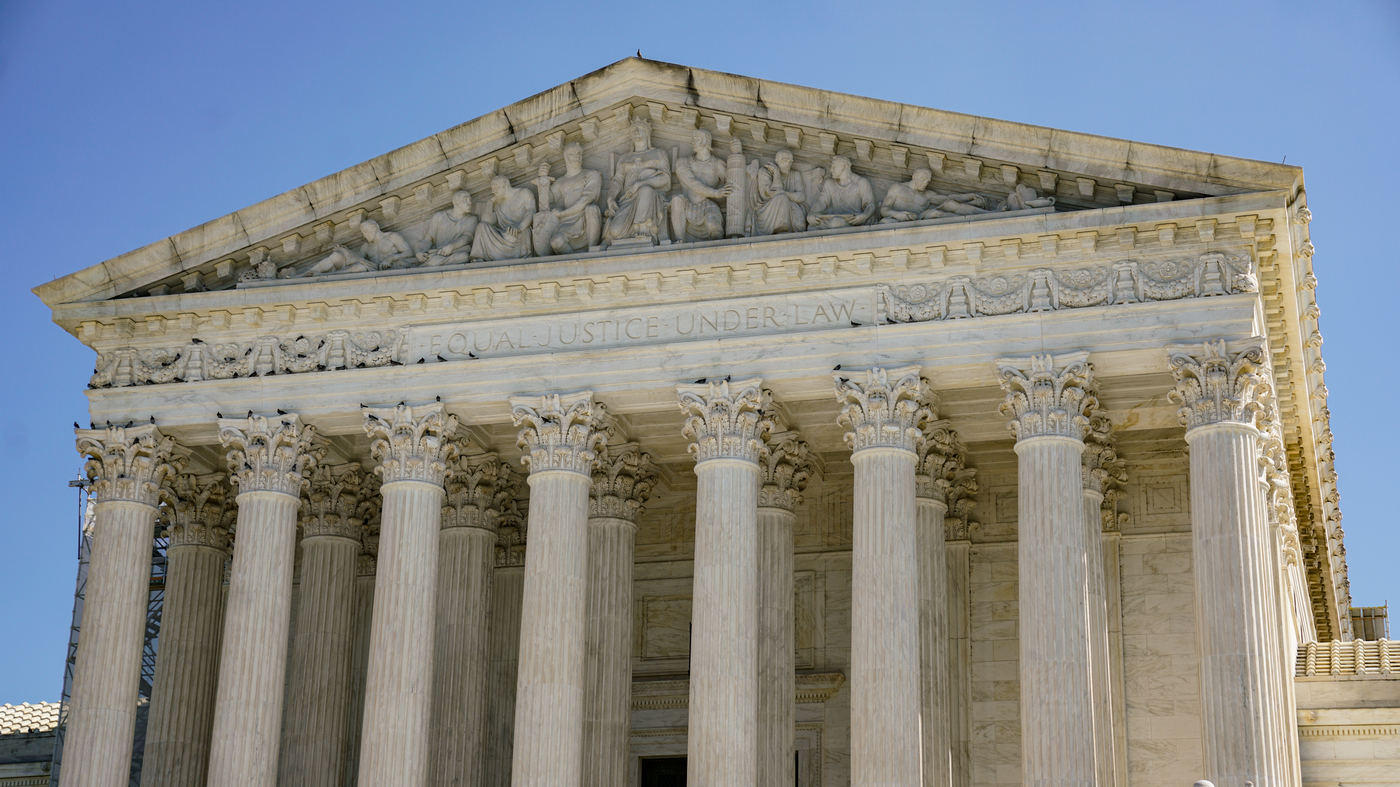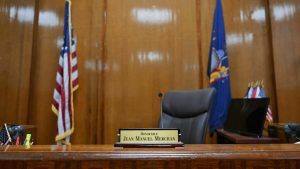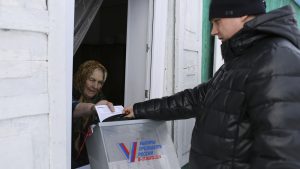
SCOTUS is going to decide on how the government talks to social media companies
A Congressional Subcommittance to Social Media Decrees on Elections and Voting in the Presence of False Content
For example, a bipartisan group of current and former election officials submitted a brief emphasizing the importance of allowing people in their roles to “remain free to communicate with social media platforms to share accurate information about when, how, and where to vote; to correct false election information; and to address violent threats and intimidation directed at their own ranks.” They also said it’s important that election officials and government agencies are able to respond when social media companies reach out for help in promoting accurate voting information and limiting the spread of false content.
Members of the nonpartisan Election Protection coalition said they fear a ruling for the states would “endanger the right to vote as information sharing between and among civil society, government, and social media companies is essential to prevent malicious election interference and voter suppression efforts.”
The committee pointed out that there could be negative consequences if a too-sensitive test is used. First, it could cause a chilling of the free flow of government information to the news media. Second, it could permit people to pursue fishing expeditions that are too much trouble, if they can show that the journalists colluded with public officials.
The American Medical Association asserted in the brief that the Biden administration has a compelling interest in combatting vaccine misinformation. That’s because, according to the AMA, “it is an indisputable scientific fact that vaccinations save lives.”
But the smaller and conservative-oriented Association of American Physicians and Surgeons (AAPS) wrote in a brief that accepting the American Medical Association’s assertion would “green-light government censorship” of people like Robert F. Kennedy, Jr., a presidential candidate and leading voice in the anti-vaccine movement.
“The same arguments made by the AMA Amici could be extended to other types of speech disfavored by the Biden Administration, such as criticism of transgender procedures and late-term abortion,” the AAPS wrote.
In an opinion signed by Justice Amy Coney Barrett, the Supreme Court established a test to determine when a public official can be considered to be engaging in state action in blocking someone from their social media account. The official needed to have both the authority to speak on behalf of the State and the authority to speak in social-media posts.
Many of the briefs were filed in support of the other party, even though First Amendment groups would typically not file a stand in such a case. He said he found that sign of theoretical messiness of the issues in this case.
Unlike Bantam Books, Hans said, where “it’s pretty clear what happened, and it was also one specific instance of government interference, here we have a whole plethora of actions that are not necessarily created equal.” He thinks that the Supreme Court might not be the right place to look at these sorts of questions.
Gautam Hans, associate director of the First Amendment Clinic at Cornell Law School, anticipates Murthy v. Missouri being a difficult case for the court to parse through, since the states identify a vast range of different actions by different parts of the government with which they take issue.
The US Chamber of Commerce, a broad business group, warned the court in its brief against allowing the theory of state action to be used to punish private entities. If the Court agrees with the government that it is interfering with private speech choices, it should rule that the remedy is a restraining order, not injunctions.
Jones said that, when the conduct of a private actor can be transformed into state action, a standard was created. Private actors acting at the directives of the government can be held liable.
A Supreme Court Justice Indicts the Biden Administration for Disagreing with Social Media: a case study of the Knight First Amendment Institute
At the moment, various arms of the US government will communicate directly with platforms for all sorts of reasons. During a global outbreak, the CDC might send an email to someone at the social networking site to let them know if there is a disease in their area. You could imagine similar scenarios for voter misinformation, election integrity, and other public emergencies.
The intent of the commission was not to educate or inform book distributors about how to comply with the law but rather to intimidate them into suppressing and censoring content that the commission didn’t like, according to the staff attorney at the Knight First Amendment Institute. The court recognized that while it’s constitutional for the authorities to advise or persuade intermediaries to act in a certain way, the government had gone too far in this instance. “When the acts become coercive, and when they basically apply this unrelenting pressure so that the intermediaries don’t publish speech because the government doesn’t like it, that does, in fact, violate the Constitution.”
Bantam Books is a case from 1963 involving a Rhode Island commission created to evaluate whether books were appropriate for minors. The commission coerced book distributors into suppressing certain works.
In July 2023, a federal district court ordered parts of the Biden administration not to speak with social media platforms, because they were being used to spread misinformation. Later that year, the Fifth Circuit Court of Appeals upheld much of that broad preliminary injunction, though it narrowed some of its scope. Soon after, the Supreme Court lifted limits on the administration’s communications while considering the case.
If this legal argument sounds unsettlingly familiar, it may be because much of Murthy is echoed in Elon Musk’s extremely cursed crusade to make the “Twitter Files” a thing. The original Missouri state AG’s press release about the lawsuit references Hunter Biden’s laptop, the Wuhan lab leak theory, and the efficacy of masking.
First Amendment Laws and the Defamation of Social Media Disclaimers: A unified opinion on Lindke v. Freed
The interest groups wrote comments to the court warning that no matter how justices rule, they should be careful not to harm these groups.
The court made a unanimous decision in Lindke v. Freed, which was about whether Freed violated the First Amendment by blocking and deletion comments from Lindke on his Facebook page. The test created a new way to determine whether an official could be held liable for violating a citizen’s First Amendment rights through actions on their social media pages.
The executive director of the International Municipal Lawyers Association thinks it did. “I think we have a clarity than we didn’t before.” And she pointed to a variety of specifics in the court’s opinion, noting that “Justice Barrett says in the opinion if you put up a disclaimer that says the views expressed herein are my own or this is the personal page … that’s going to go a long way” toward “supporting the idea that this was a private account.”
The court has the right to hold that public officials can’t immunity themselves from liability if they use personal accounts to conduct official business, said a senior counsel of the Knight First Amendment Institute.
Dhillon Law Group partner Gary Lawkowski said in an emailed statement about the new ruling that “the biggest impact of this opinion may not be the formal test set forth in its holding—rather, its language buried in the opinion that effectively creates a safe harbor for public officials who place disclaimers on their social media accounts, providing an easy way for public officials to stay on the ‘personal’ side of the law going forward.”
When Donald Trump was president, he blocked his critics and used his personal account to communicate with the public. Before he left office, two federal appeals court ruled that was illegal.
Covid-19 Policy and Public Information: Comment on Freed’s Page and a Mixed Test of “An Ambiguous” State-Policy
Gadfly Kevin Lindke maintained that city manager Freed violated his right to speak by blocking him from responding to things Freed said on his page about Covid-19 policy and other matters.
Lindke said that Mr. Freed was putting out policy directives. He was issuing press statements, and this was the place where the information was being relayed to the community.
The city manager replied that he did answer questions and point out websites for local information. He said that 80% of the posts were his personal family photos and pictures of his dog. “Had I thought for a moment that this page was public and that I didn’t control it, I would never have posted photos of my little girls or my wife.”
Writing for the court, Justice Amy Coney Barrett said that “a post that expressly invokes state authority to make an announcement not available elsewhere is official,” and members of the public are entitled to make comments in response. But “a post that merely repeats or shares otherwise available information is more likely personal,” and the owner of the page may well be able to block critical or unwelcome comments.
Still, she said that evaluating “an ambiguous page” like Freed’s is a fact-specific undertaking in which the posts “content” is the most important consideration.
“I do think they tried to create a simpler test,” she says. But she adds that it remains to be seen how workable the new test is, especially when a public official mixes personal and official material on his or her page.

